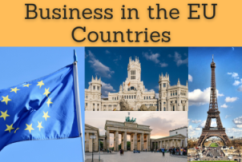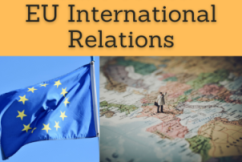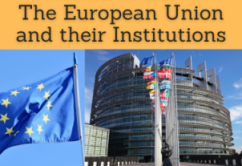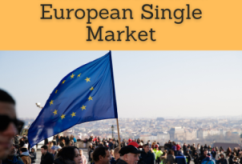Business in Croatia, Zagreb. Croatian Economy

Foreign Trade of Croatia, Zagreb. Access to the Croatian Market
- Introduction to the Republic of Croatia (EU)
- Croatian Economy
- Foreign Trade of Croatia
- Access to the Baltic-Adriatic Transport Corridor
- Business in Zagreb
- Case Study:
- Agrokor Group
- Duro Dakovic Holding
- Access to the Croatian Market
- Business Plan for Croatia
The objectives of the subject “International Trade and Business in” Croatia” are:
- To analyze the Croatian Economy and Global Trade
- To know the trade opportunities in Croatia
- To explore the Croatian trade relations with the country of the student
- To know the Croatian free trade agreements (as a member of the EU)
- To develop a business plan for the Croatian market
- To analyze the profile of the Croatian companies

The Subject “Foreign Trade and Business in Croatia” belongs to the following Online Programs taught by EENI Global Business School:
Doctorate: European Business, World Trade.
Masters: International Business, Foreign Trade.
Languages:  or
or  Croacia
Croacia
 Croatie.
Croatie.
- Credits of the subject “Doing Business in Croatia”: 1

- Duration: one week
Majstor u međunarodnom poslovanju (Croatian Students).

International Trade and Business in Croatia.


Croatian trade agreements:
- Croatia and the European Economic Area
- The EU
- As a member of the EU, Croatia is a beneficiary of the EU Trade Agreements with Algeria, Ivory Coast, South Africa, South Korea, India, Mexico, MERCOSUR, Moldova, Georgia etc. besides the Customs Union with Turkey
- European Single Market
- The EU Services Directive
- European Digital Single Market
- European Customs Union
- Central European Initiative
- Adriatic-Ionian Initiative
- Regional Cooperation Council
- Organization of the Black Sea Economic Cooperation (observer country)



- WTO
- GATS
- Agreement on the Application of Sanitary Measures
- Agreement on Technical Barriers to Trade
- Agreement on Preshipment Inspection
- Agreement on Safeguards
- Trade Facilitation Agreement
- WCO
- COTIF Convention (Rail)
- BIC (Containers)
- Chicago Convention (ICAO)
- IMO
- Convention for Safe Containers
- Istanbul Convention
- Customs Convention on Containers - not a member
- Convention Harmonization of Frontier Controls of Goods
- CIM & CIT Rules (Rail)
- IRU
- TIR Convention
- Guidelines on Safe Load Securing for Road Transport

- Economic Commission for Europe
- The EU
- ECB
- EIB
- EBRD
- EU-CELAC Summit
Croatia was a member of the CEFTA.

- Asia-Europe Meeting
- UN
- WB
- WTO
- IMF
The Republic of Croatia.
- Croatian borders: Slovenia, Hungary, Serbia, Bosnia and Herzegovina, and Montenegro
- Official language of Croatia: Croatian
- Capital of Croatia: Zagreb
- Population of Croatia: 4.3 million people
- Currency of Croatia: Kuna (HRK)
Religion in Croatia: Christianity (Catholicism: 3.6 million).

Croatia belongs to the European Economic Area of the Western Civilization.

Croatian Economy.
- The Republic of Croatia belongs to the group of nations with a small and open economies, which are mostly connected to other international markets
- GDP per capita of the Republic of Croatia: 15,632 USD (Source: Central Office of statistics)
- Croatia is the last member to join the EU
- Key economic sectors in Croatia: agriculture, wood processing, agribusiness, textile, petroleum, metal and chemical, electrical, construction, international trade, shipbuilding, marine engineering, and tourism
- The Republic of Croatia has taken many tangible measures such as modifications and optimizations to existing laws and rectifications to existing procedures to align them with the EU laws and regulations and to facilitate the economic and international trade activities
- Foreign direct investment (FDI) is vital for the restructuration and modernization of the economy of the Republic of Croatia
The Agrokor Group is the largest private company in Croatia and one of the leading regional companies employing 33,000 people. The Agrokor Group's core businesses are food and drinks production and distribution.
(c) EENI Global Business School (1995-2024)
We do not use cookies
Top of this page



